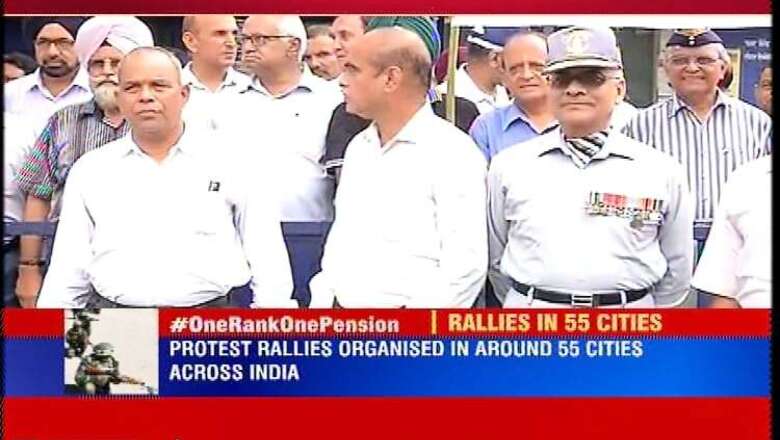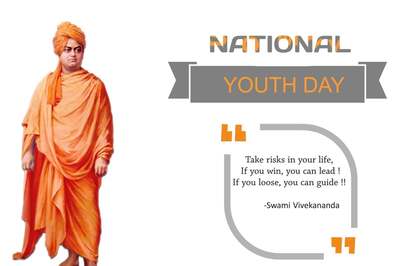
views
New Delhi: In a bid to step up pressure on the Narendra Modi government for the implementation of One Rank One Pension scheme, ex-servicemen have signed a petition in blood and will hand it to President Pranab Mukherjee and the Prime Minister. With mahasangram rallies held in around 55 cities across India, it will be followed by an indefinite relay hunger strike commencing from June 15 at 9 AM.
General (retired) Raj Kadyan said, "We did not want to protest but are forced to take this route. We have been pushing for OROP's implementation for 6 years. We are only asking for our right. We want the Prime Minister to set a timeline."
Seeking an intervention, the ex-servicemen had also written a letter to Prime Minister Narendra Modi asking for the implementation of OROP as soon as possible. While the government had said that it is in favour of the scheme, it is unwilling to commit to a timeline.
One Rank One Pension scheme has been a long-standing demand of nearly 3 million ex-servicemen in the country. It seeks to ensure that a uniform pension is paid to defence personnel who retire at the same rank with the same length of service, irrespective of their date of retirement.
Close to 22 lakh ex-servicemen and over six lakh war widows stand to be the immediate beneficiaries of the scheme.
Vowing to address the "vexed" issue of OROP, Modi had on May 31 sought "some time" from the ex-servicemen. Modi had said the issue is not as simple as he had thought but much more "vexed" as "problems" have been added to it over the years.
Five years ago several veterans returned 20,000 medals to the government to protest lack of progress in the OROP promise. The ex-servicemen's community is still anxiously waiting for the demand to be fulfilled.
The implementation of OROP is coupled with several problems. The problem of pension disparity started after the Third Pay Commission in 1973. It created a situation where a Major in the Indian Army and equivalent ranks in the Indian Navy and Indian Air Force who retired before 1996 gets 53% lesser pension than a Major who retired in 2006.
Before Lok Sabha elections the then Congress-led United Progressive Alliance (UPA) government allocated Rs 500 crore for OROP and when BJP-led National Democratic Alliance came to power it increased the allocation to Rs 1,000 crore.
But the actual financial requirement is much much more, almost to the tune of Rs 8,300 crore. With arrears from April 2014, this figure would be around Rs 20,000 crore.
Meanwhile, the demand for giving similar benefits to paramilitary forces is also being raised. It will be a tight rope walk for Modi who wants to keep the revenue expenditure under check.




















Comments
0 comment